Drug and Alcohol Rehab Ireland
Based in Ireland and suffering from an addiction? The fact that you are looking for help suggests that you want to break-free. Call us for FREE advice or enter your number below.

Ireland Drug and Alcohol Rehab Treatment Centres
Are you searching for an Ireland based drug and alcohol rehab centre? Find out more about our local recovery facility. We will get you clean.
Drug and Alcohol Rehab Ireland
Drug and Alcohol Rehab Centres in Ireland
Alcohol has long been a part of Irish culture, but there’s a big difference between a few celebratory drinks and an addiction. According to studies, around 54% of 18-75 year old alcohol drinkers in Ireland where considered to be harmful drinkers, putting it high on the list when compared to other EU countries. Similarly, illegal drug use is on the rise, with local services in the Republic of Ireland stretched to their limit. If you need help, and don’t want to be stuck on a waiting list, then the Ocean Recovery Centre can help.
If you’re looking for drug and alcohol rehab in Ireland or even drug and alcohol rehab in Northern Ireland it’s worth considering rehab centres that are a short journey away, as this gives you the chance to spend some time away from home. The Ocean Recovery Centre is set in Blackpool, close to both Liverpool and Manchester airports, with most flights to Ireland taking under an hour. We can often offer admission within 48 hours, so there are no more delays to your treatment.
Going through detox and rehab
The first step in addiction treatment is to go through detox. For many people, their drinking or drug use has spiralled out of control, leading to them becoming dependent on these substances. Detox allows them to break the cycle, getting all the drugs and alcohol out of their bodies so they can begin to heal. Staying in the safe environment of rehab centres can make detox a little easier, as you can be prescribed medication that helps with the worst of the side effects. For many people, managing to come off these substances is a big relief and can feel like a fresh start.
The next step of drug and alcohol rehab in Ireland is to go through therapy. Drug and alcohol rehab treatment includes many different forms of therapy, depending on your needs, and this will be assessed when you first arrive at the Ocean Recovery Centre. Our addiction counsellors are great at helping people who drink to excess or take drugs change their habits for life, allowing them to rebuild and find a brighter future.
While you stay at the Ocean Recovery Centre, we provide a peaceful, pleasant environment and a home away from home. You can stay in a comfortable bedroom, enjoy the communal areas, and take part in outings and activities. Residential treatment allows you to get intensive therapy, which can be hard work, so we try to balance your schedule with quiet time and enjoyable things too.
Our Rehab Facilities
At Ocean Recovery, we are extremely proud of our state-of-the-art facility. We provide residents with the most relaxing stay possible and they can enjoy our modern establishment.
Ocean Recovery Facilities include:
CQC Registered
FREE Transportation Included
Medically Assisted Detoxification
2 Executive, Sea View Double Ensuite Rooms
8 Double or Single Ensuite Rooms
3 Single Rooms with Dedicated Separate Bathroom
Comfortable Communal Lounge with Piano & Sky TV
Beautiful Modern Dining Lounge
External Courtyard and Outside Seating Area
12 Months FREE Aftercare
Regular Contact with Loved Ones Encouraged
Large Multi-Purpose Group Activity Room with Superb Sea Views
Images of Our Facilities
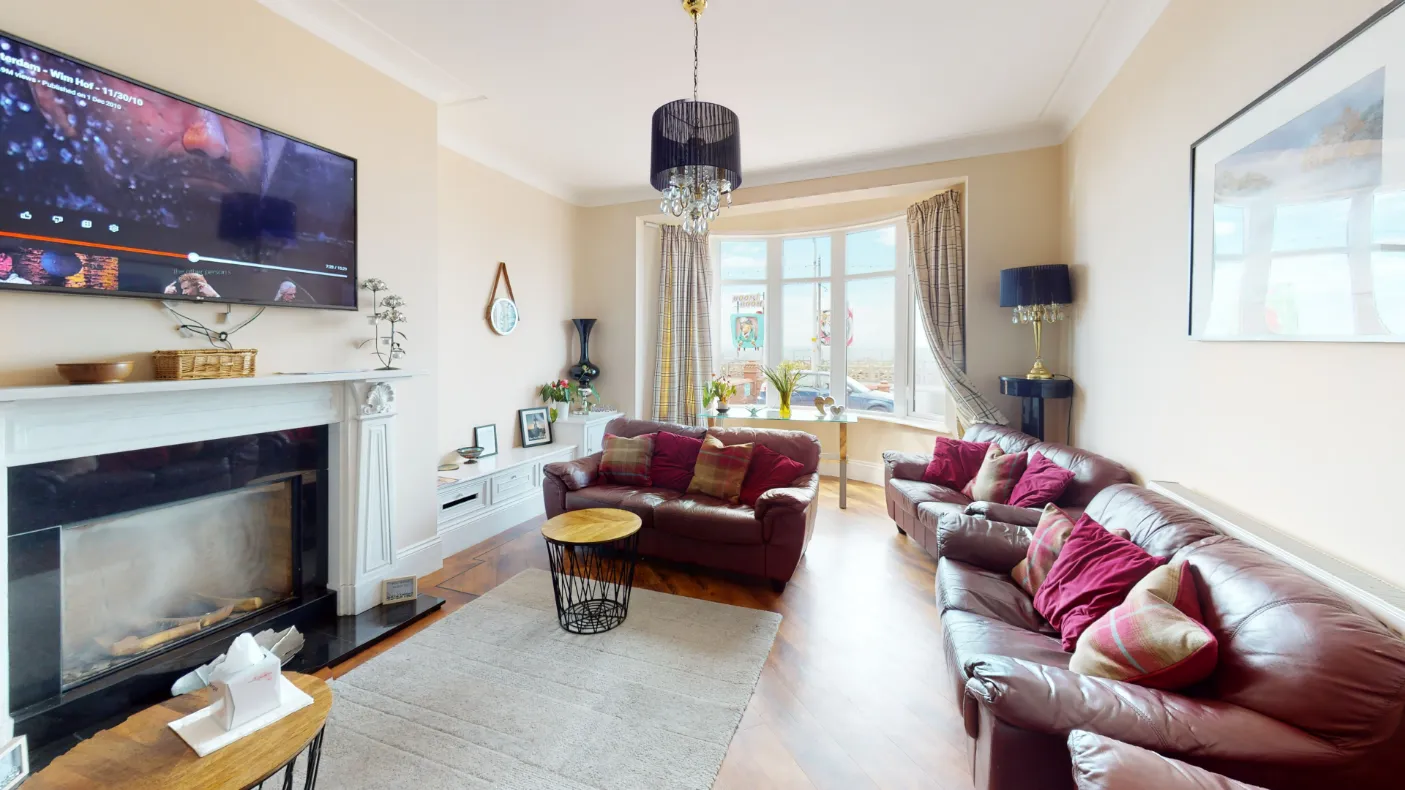
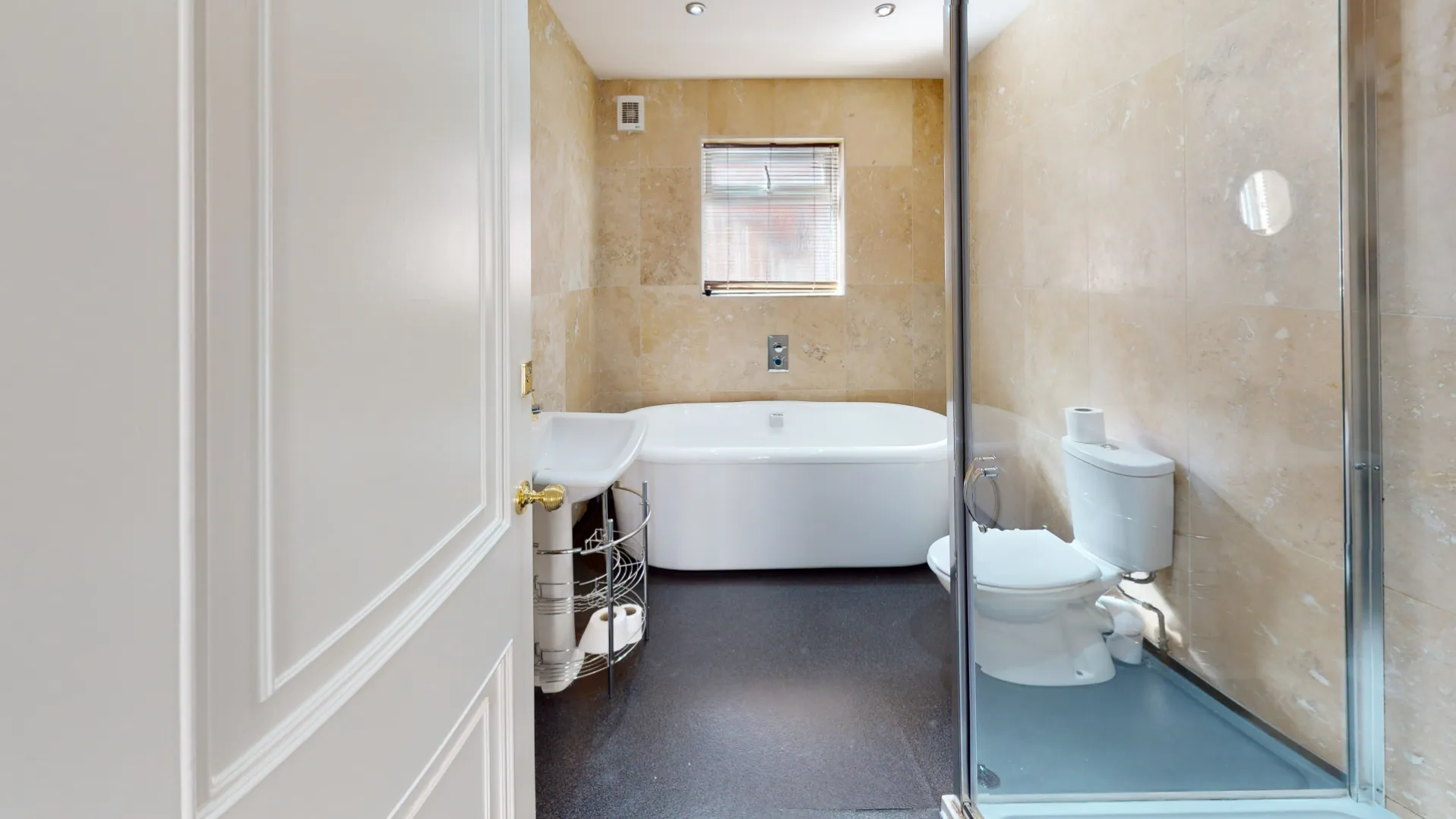
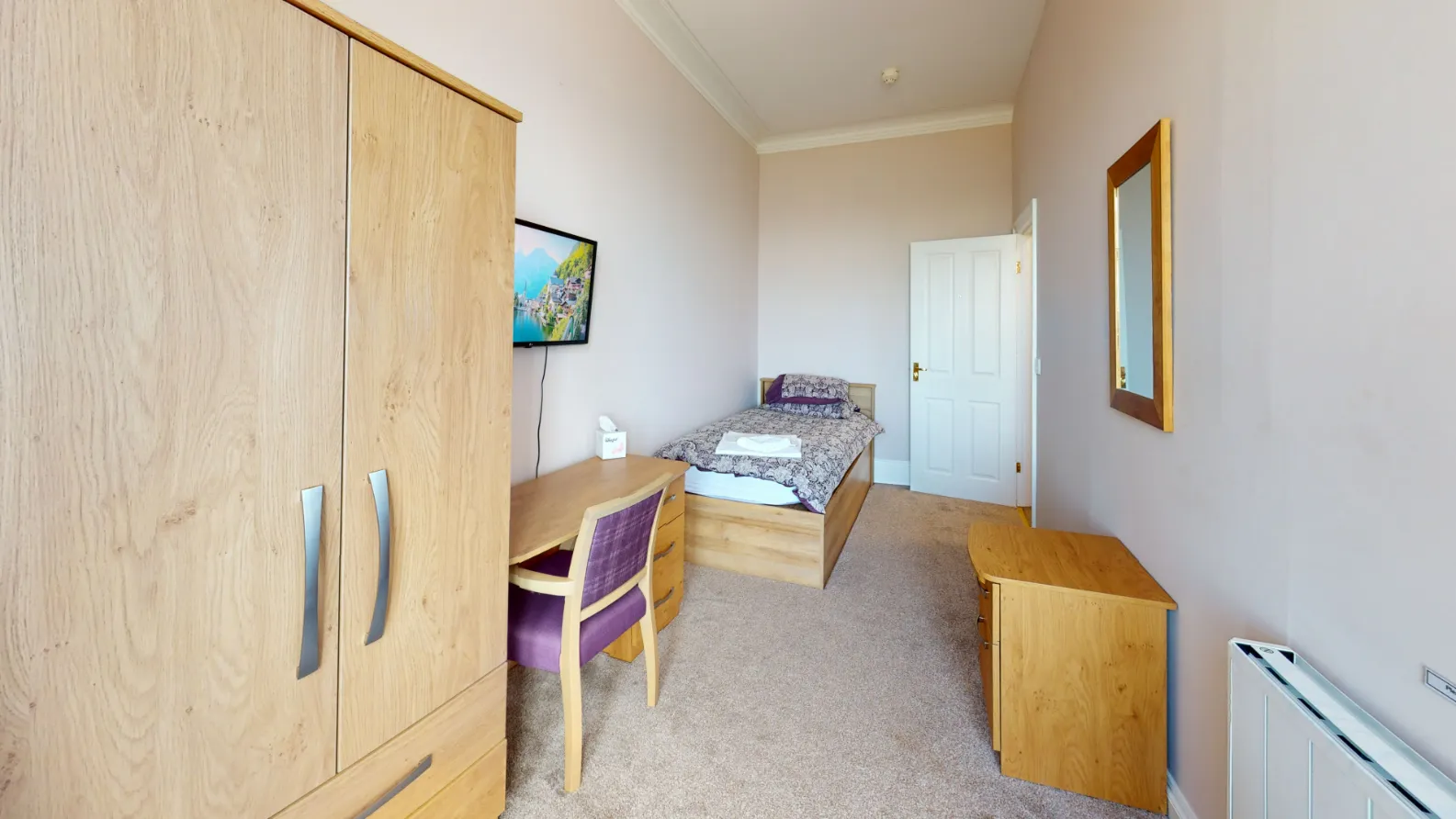
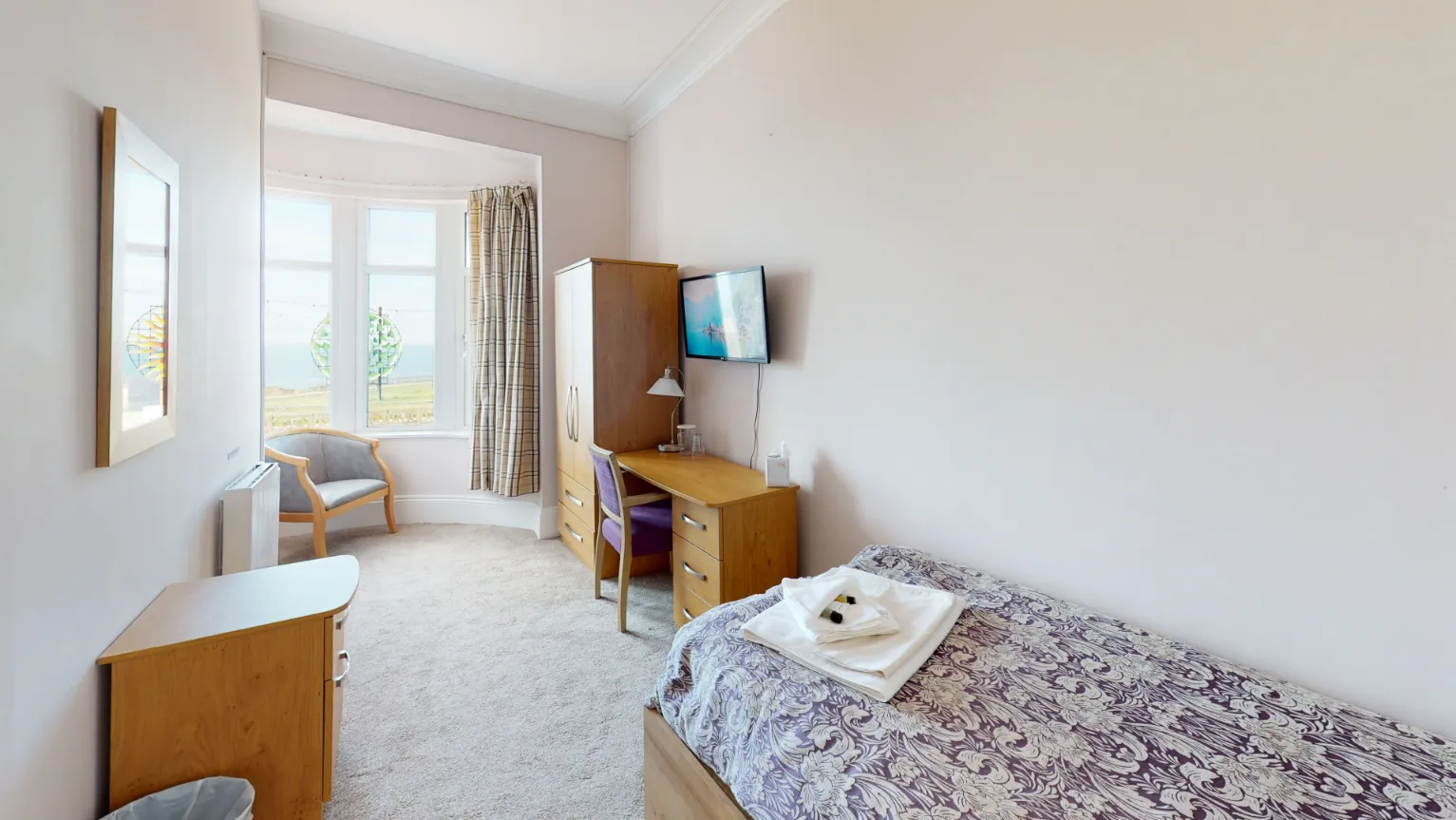
Facilities at Ocean Recovery




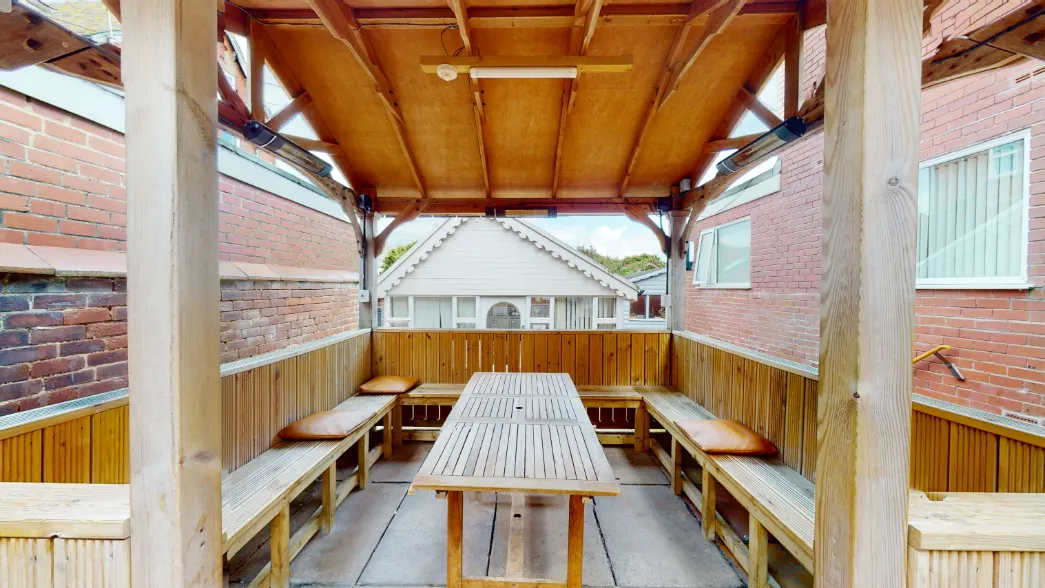
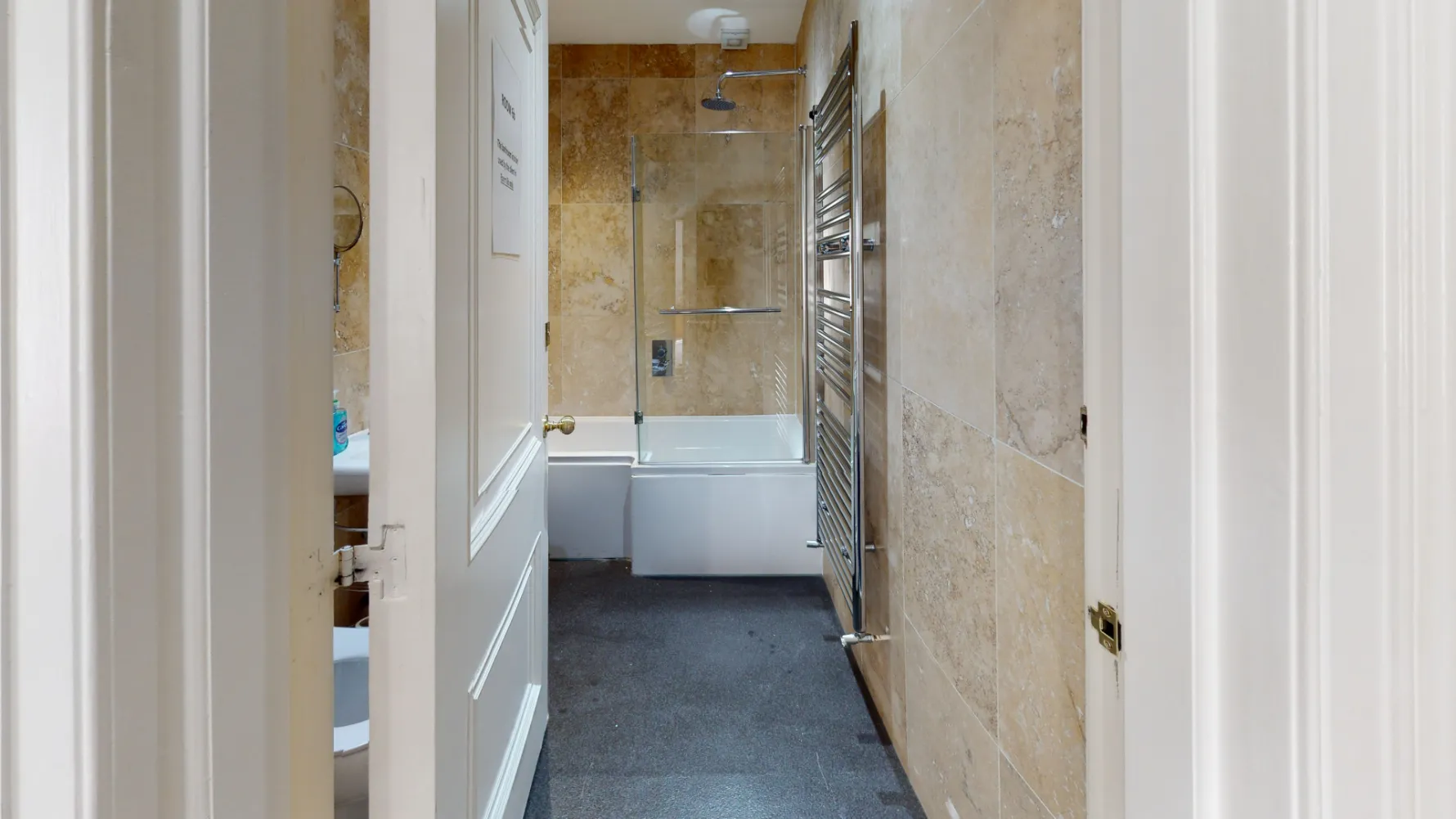
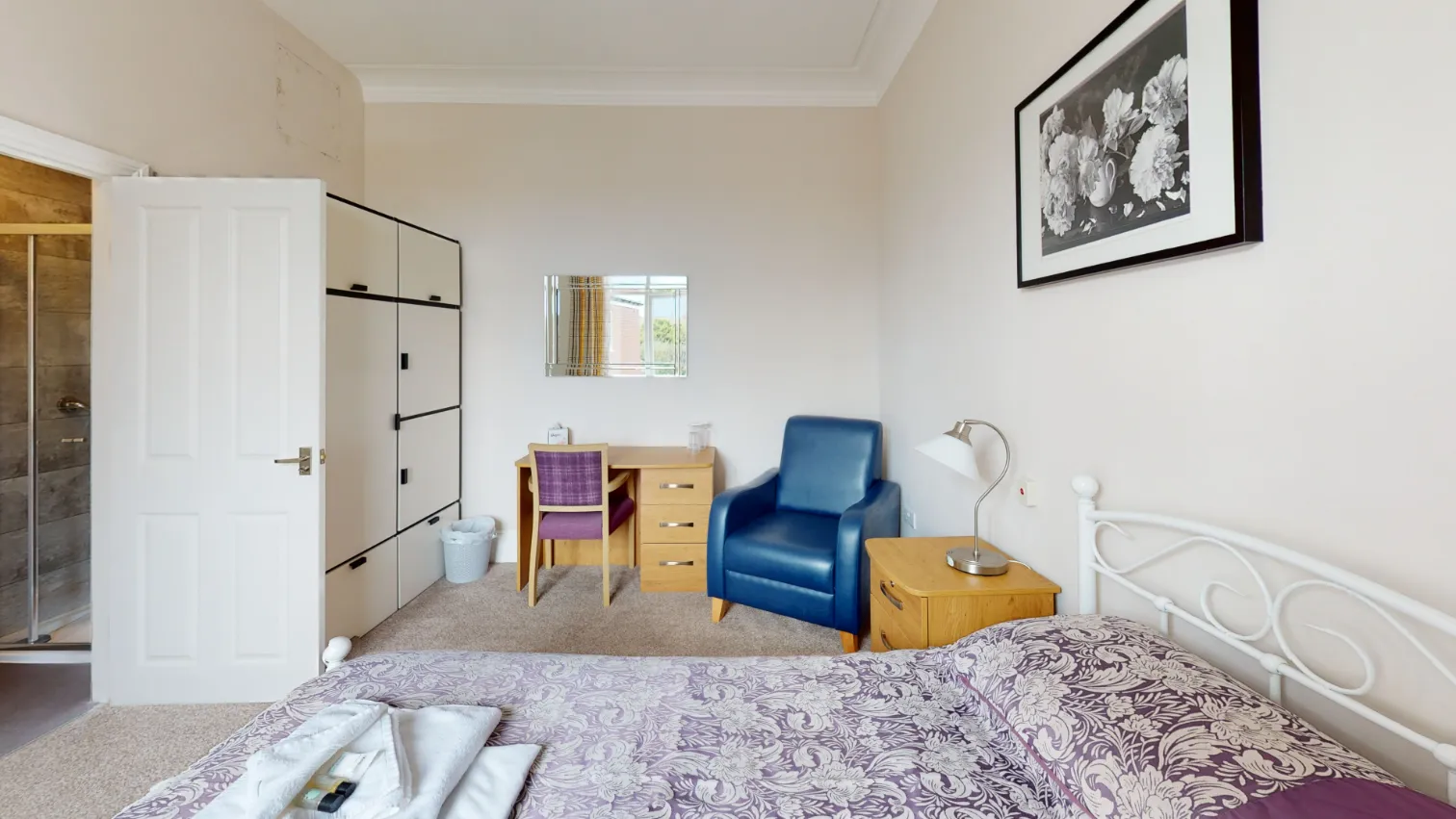
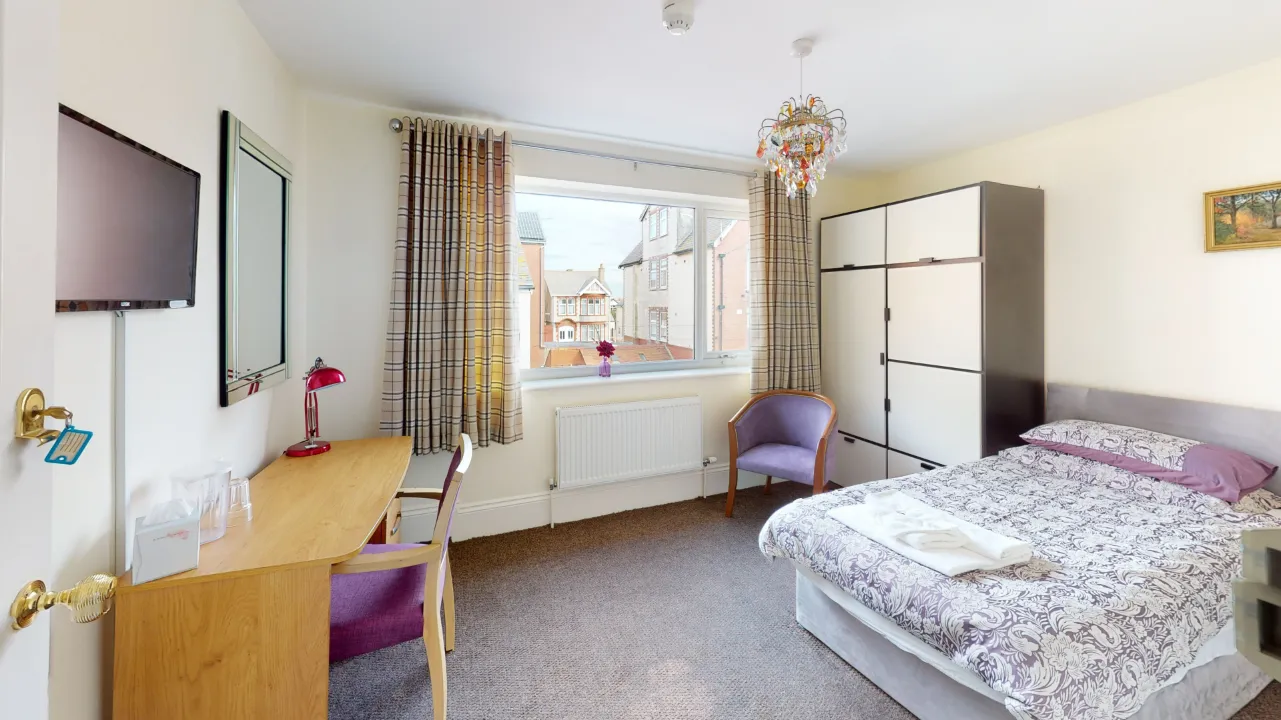
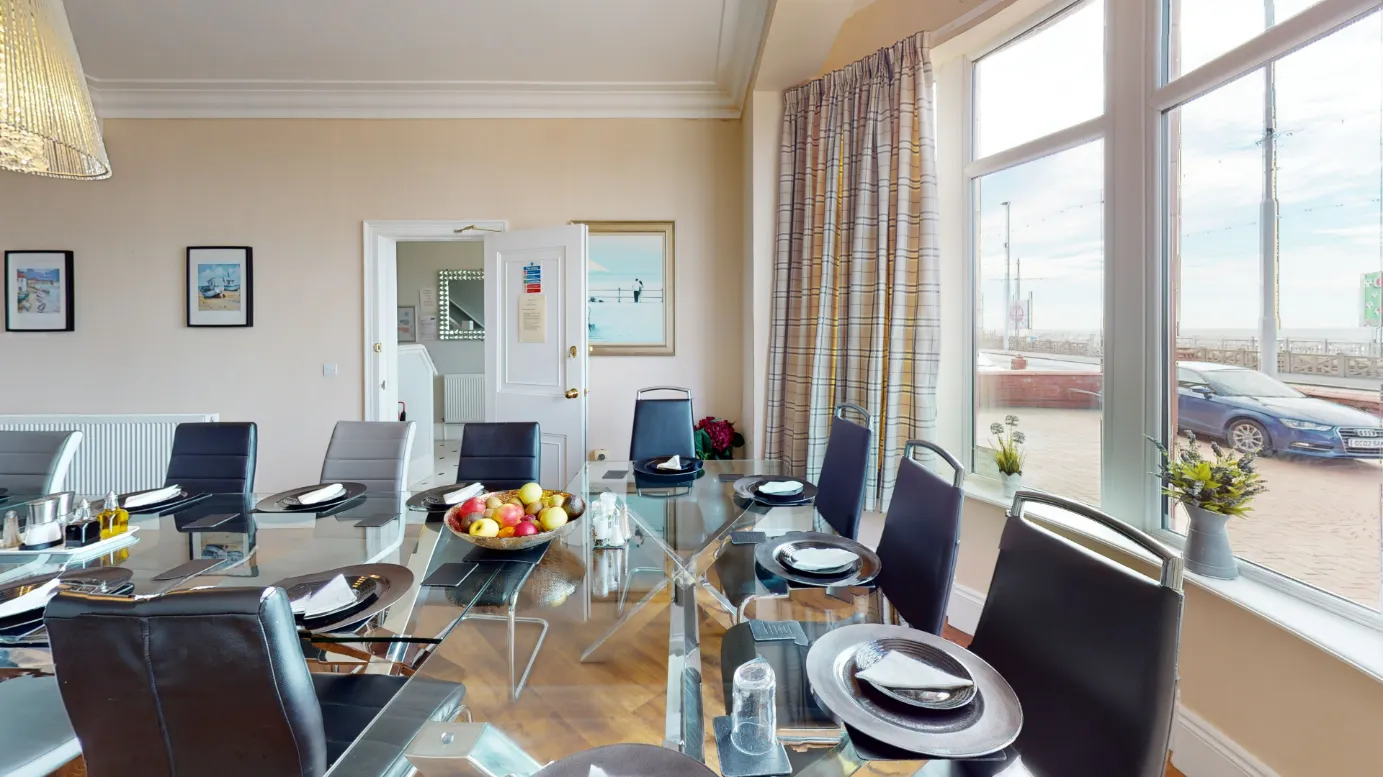
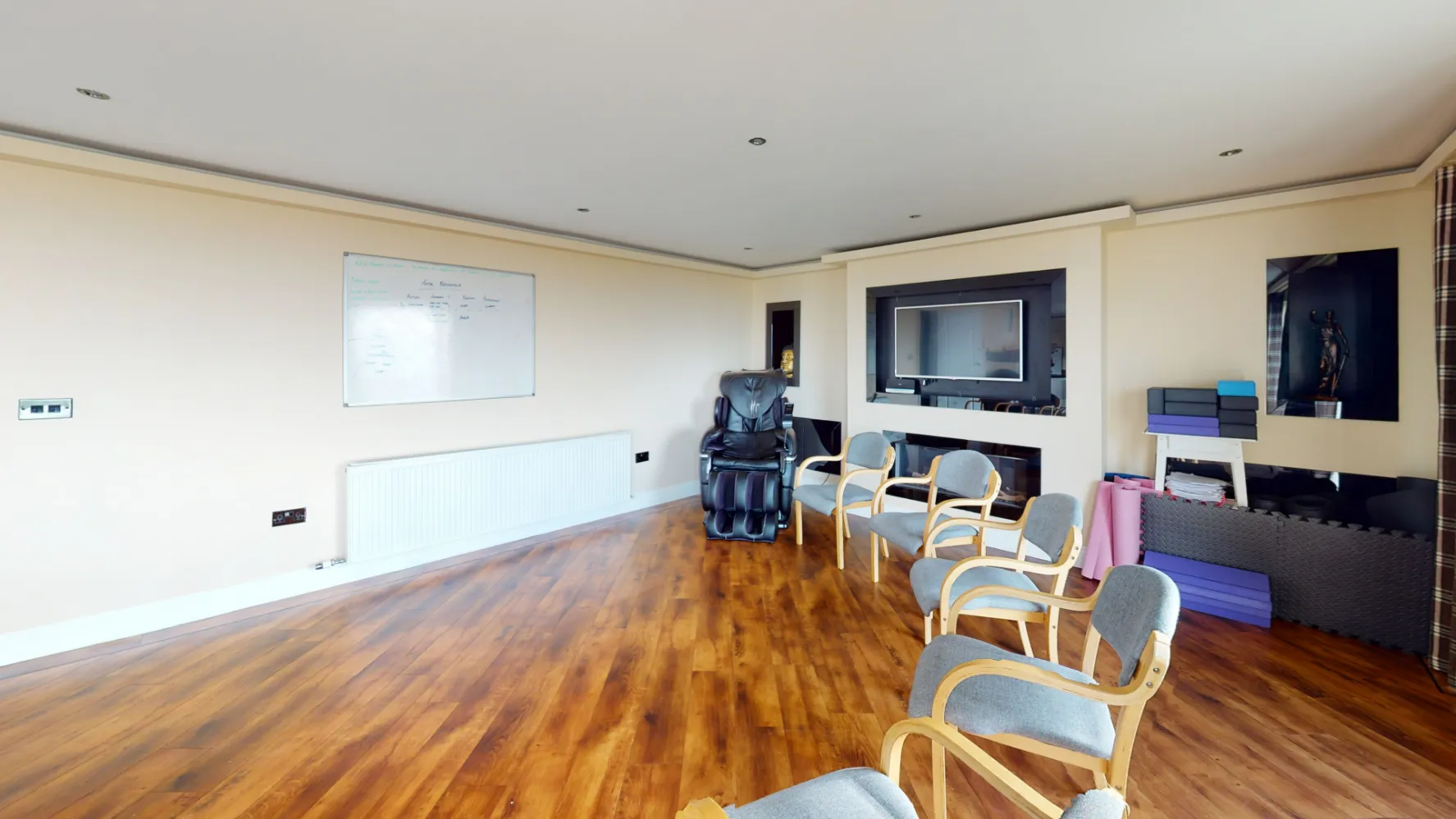
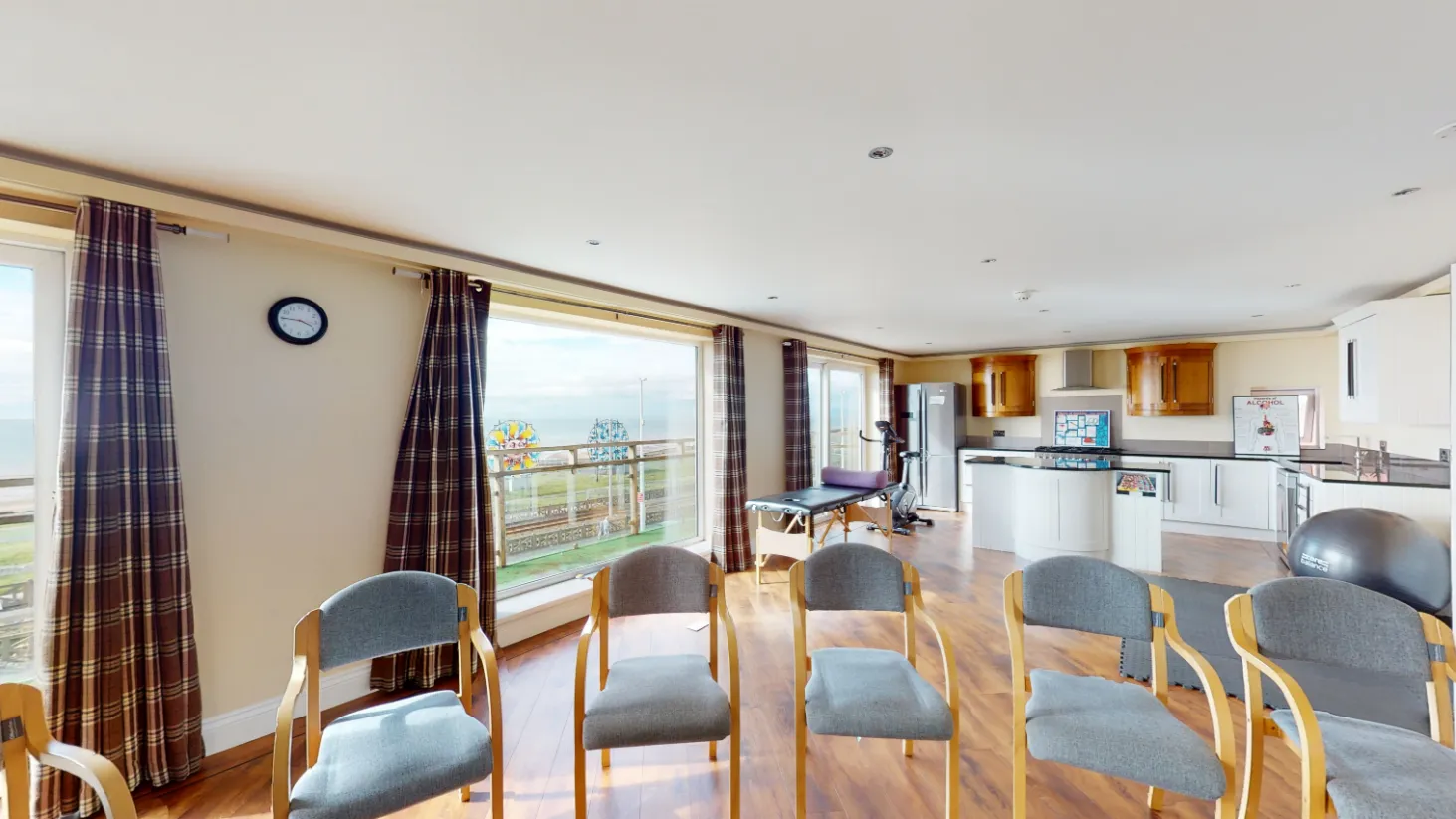
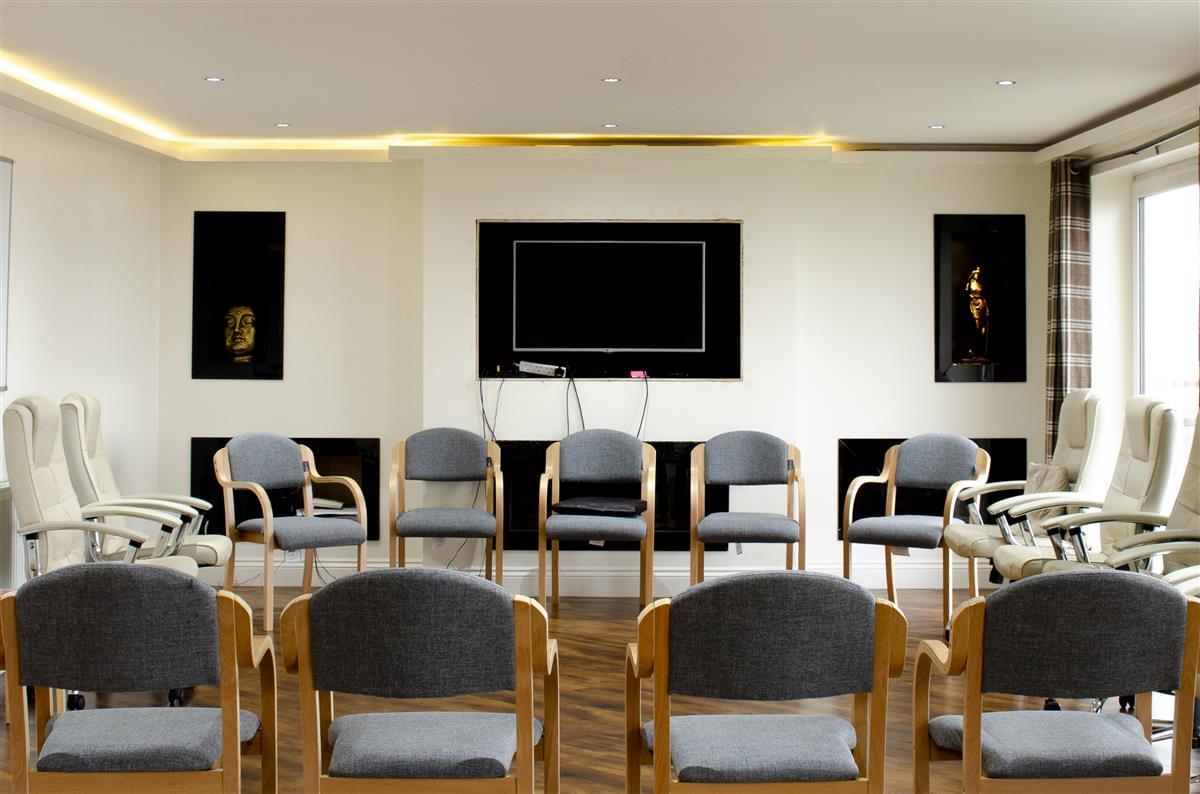


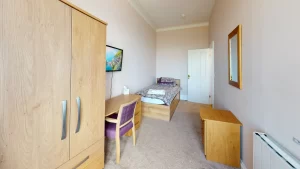
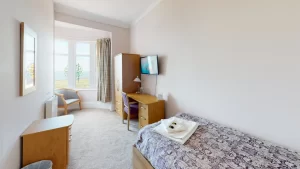
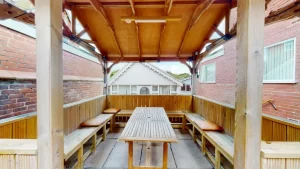

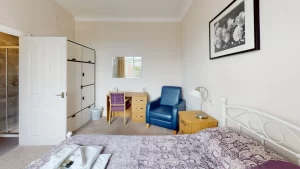
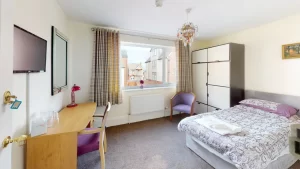

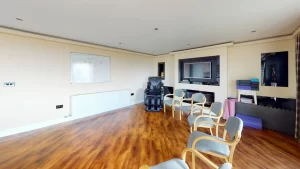
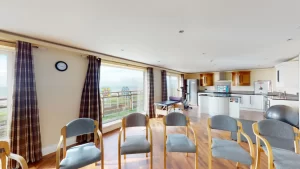
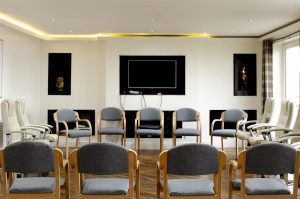
Give Us A Call
Speak to an advisor today to find out more about the rehabilitation programmes we offer at our drug and alcohol rehab centre
Inspected and Regulated by the CQC (Care Quality Commission)
The Care Quality Commission, also known as the CQC is an independent regulatory body that acts as a non-bias inspector. This is the confident stamp of approval that you should look for when searching for a suitable rehab, which is why here at Ocean Recovery we’re regularly inspected for a public report.
If you want to gain a better understanding of what it is like at Ocean Recovery Centre, feel free to read more on our CQC profile here where you can find our latest inspection report.
Is it time for drug and alcohol rehab?
Each person with an addiction reaches their own rock bottom when they realise enough is enough. However, you don’t need to wait until your drug and alcohol addiction becomes severe before you get help. As with any disease, the earlier you can treat it, the better, so you should never feel silly getting in touch.
There can be many things that lead you to rock bottom. It could be the breakdown of a relationship, debt, a job loss or even legal troubles caused by your addiction. However, it may simply be a desire to get your life under control and to no longer feel the ill-effects of alcohol or drugs. We don’t have a particular criteria to access our treatment programme, simply that you are willing to give it your best and commit to a life of sobriety.
Paying for private care
It can be extremely difficult to find drug and alcohol rehab in Ireland that’s funded by the HSE and residential rehabilitation in particular has very long waiting lists. Urgent cases are often prioritised ahead of other cases, which means you may not ever get to the top of the list for help.
While alcohol and drug rehabs are not the cheapest option, there are ways that the cost can be made more affordable, such as health insurance or private health schemes. We aim to make your stay at the Ocean Recovery Centre represent good value for money, including all expenses in the price so that there are no surprises.
When we give you a quote, it’s worth weighing up the cost of going to clinics in Ireland versus continuing with your addiction. Not only are alcohol and drugs expensive, addiction can lead to all sorts of issues in your career and personal life, which can also have an impact on your finances.
Aftercare and support
When you stay in the safe environment of rehab clinics, you will be kept away from temptation and well supported. This means you might be worried about what happens when your 28-day programme comes to an end. Luckily, there are plenty of ongoing treatment options to keep you on track after rehab, and if you complete a programme with us you get a year of free aftercare. These support group sessions are an excellent way to keep in touch with your fellow patients and also to build a support network.
Outside of treatment centres, there are other community organisations who can help you stay sober. Many people who’ve completed rehab at the Ocean Recovery Centre go on to Alcoholics or Narcotics Anonymous meetings, as they may find the 12-steps approach works well for them. Others choose extended care such as additional individual or family therapy, It’s important to find what works for you, and we’ll spend a lot of time talking about your aftercare to ensure that you’re very well looked after.
When you’re looking for drug and alcohol rehab in Ireland and need expert advice and support, simply call the team at the Ocean Recovery Centre on 01253 847 553 or text HELP to 83222 and we’ll be in touch.
Get to Know Our Team at Ocean Recovery
We are incredibly proud to share our highly experienced and educated team that run our centre. Understandably, you might want to see the faces behind the credentials and a little more of their own backstory.
That being said, find out below about who works here at Ocean Recovery and how they act with empathy, professionalism and understanding no matter who comes through our doors.
-
John Gillen
DirectorEuropean Pioneer of NAD+ Therapy John has travelled extensively around…
View bio
John Gillen
Director
European Pioneer of NAD+ Therapy
John has travelled extensively around the world, culminating in 19 years’ experience looking at different models. He is the European pioneer of NAD+ (Nicotinamide Adenine Dinucleotide) treatment to Europe in 2010; and recently back from the USA bringing state of the art Virtual Reality Relapse Prevention and stress reduction therapy. His passion extends to other metabolic disturbances and neurodegenerative diseases. The journey continues. In recent times, John has travelled to Russia to study and research into a new therapy photobiomudulation or systemic laser therapy working with NAD+ scientists and the very best of the medical professionals in the UK and the USA, together with Nadcell, Bionad Hospitals own select Doctors, nurses, dieticians and therapists. Johns’ passion continues to endeavour to bring to the UK and Europe new developments with NAD+ Therapy in preventive and restorative medicine and Wellness. In 2017 John Gillen was made a visiting Professor at the John Naisbitt university in Belgrade Serbia. -
Madissar Iqbal
Operations ManagerMadissar has a wealth of experience in a managerial position…
View bio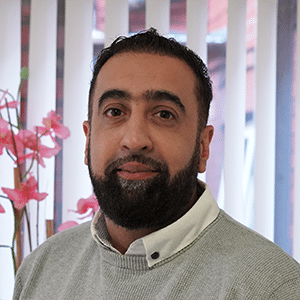
Madissar Iqbal
Operations Manager
Madissar has a wealth of experience in a managerial position within substance misuse for over 20 years, working with offending behaviour and criminal justice. Madissar began his career as a prison officer in 2000 and progressed further in the substance misuse field within the prison settings delivering various short duration programmes and linking prisoners to community-based treatment providers before their release. In 2006 Madissar successfully managed to set up the Drug Intervention Programme within Bedfordshire. This later transpired to successfully securing a service manager role and developing the Drug Rehabilitation Requirement Order. Madissar successfully secured various managerial positions within the substance misuse field with joint partnership working with Integrated Offender Management and police in reducing drug-related offending behaviour. Madissar gained extensive experience and expertise working for several organisations, such as Adapt, Rapt, Addaction, Westminster Drug Project, Hertfordshire Couty Council, NHS and Next Step Support. Madissar holds a diploma in level 5 Leadership and Management and has extensive experience in the senior managerial role. Madissar passion lies in supporting services to achieve their goals and objectives. In the last two years, Madissar progressed further in mental health as a senior managerial role, overseeing residential rehabilitation and supporting living accommodations with adults (18+) with a range of diverse complex needs.
-
Phil Grimes
Recovery WorkerPhil is an experienced and dedicated recovery worker; he has…
View bio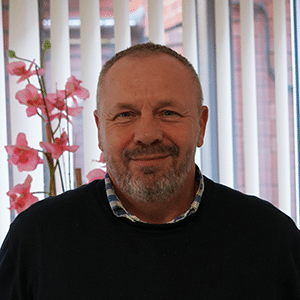
Phil Grimes
Recovery Worker
Phil is an experienced and dedicated recovery worker; he has been at Ocean Recovery since 2016. He is passionate about helping others transform their lives, having spent 25 years in addiction himself. He has been clean and living his best life since 2008. He is an experienced group facilitator and qualified life coach who uses CBT, NLP and ACT mindfulness relapse prevention techniques, all of which he is qualified in. He has a wealth of experience, having worked with young offenders, homeless, prolific offenders, and complex mental health needs. Phil thrives in the recovery environment and is a passionate, forward-thinking and realistic member of the team.
What Patients Had to Say…
We don’t expect you to only take our word for it, at Ocean Recovery we have had a great number of in-patients that have all been incredibly pleased with their progress and have reached total sobriety.
Find out below what our past patients had to say about their stay with us at Ocean Recovery and how you can get just the same results and find a sober you, once again.
Request A Callback
Enter your phone number and a member of our team will call you back to discuss your recovery.
"*" indicates required fields
Contact Us
For more information please get in touch using the information below
Call: 01253 847 553 Send us a messageDownload Our Brochure
For more information about the addiction services that Ocean Recovery offer, download our brochure.
Download our brochureDo I need help?
A lot of people are unsure if there are suffering from addiction. Take these tests to find out if its effecting you without your knowledge.
Select your test and find out more
Alcohol Addiction
Drug Addiction
Related Areas
Useful Resources
- Am I Drinking Too Much?
- Alcohol Poisoning – Signs and Symptoms
- Alcohol and Pregnancy
- Benefits of Private Drug Rehab
- Commonly Abused Illicit Drugs
- Do I have an addiction to alcohol?
- Foods That Can Help With Symptoms of Alcohol Withdrawal
- Does Forced Rehab Work?
- How Alcohol Affects the Brain
- How Cocaine Abuse Can Affect Your Mental Health
- How Do I Help A Drug Addict?
- Effects of Alcohol on Society: Addiction & Social Impacts
- How to Deal with Alcohol Cravings
- How to Stop Taking Cocaine
- How to Tell Loved Ones You’re Struggling With Alcoholism
Our Blogs
-

How Do I Know if I’m an Alcoholic?
For many people, drinking is a normal part of social life. A glass of wine with dinner, a pint at the weekend, or a toast at a wedding. All seemingly harmless. But for some, drinking becomes more than just a way to unwind. It can slowly take over daily life, relationships, work, and mental health.
-

How Long Will Fentanyl Stay in Your System?
Heroin addiction is a continuing problem in society. America has, for many years, been in the grip of an opioid crisis, fuelled by the rise of fentanyl. Problems around opiates exist in the UK, with 2,551 deaths involving them, according to the latest figures. People can take fentanyl knowingly, or it is in drugs such
-

How Does Alcohol Affect Menopause?
Menopause is a normal part of ageing that all women have to deal with. Many changes happen during these years, and they can be difficult to deal with. If you are struggling with an alcohol addiction or drink casually and are worried about how alcohol affects menopause, you should educate yourself. Going through these changes
-

Are We Redefining What It Means to Have a Problem With Alcohol?
Since very recently, the understanding of alcohol use and its associated disorders has been up for debate. The traditional, binary view of individuals as either “alcoholics” or “non-alcoholics” is being challenged by a more nuanced perspective that recognises a spectrum of problematic alcohol use. This shift is a direct reflection of the varied experiences of
-

What is Carfentanil? Everything You Need to Know
Drug addiction is a continuing problem in the UK. In the latest ONS release, 5,448 drug-related deaths were recorded in England and Wales – which is a considerable increase from the previous year. Opioids are a big reason for these numbers. Excluding drug-related deaths where the substances involved are not mentioned, opioids are responsible for
-

What Are the Symptoms of Cocaine Cardiomyopathy?
Cocaine can have a number of risks, including the possibility of overdose and the risk of addiction. One issue you might not be familiar with is the risk of cocaine cardiomyopathy. What is Cocaine Cardiomyopathy? Cocaine is a potent stimulant associated with the development of numerous cardiovascular issues, including dysrhythmias (abnormal heartbeat) and hypertension (high
-

Understanding Hypoxemia: Causes Symptoms and Risks
Substance misuse can have a wide range of physical effects, depending on the substance involved and many other factors. One possible risk is hypoxemia, which affects how the body processes vital oxygen intake. But what Is hypoxemia, and what are the risk factors involved? What is Hypoxemia? Hypoxemia is a medical condition characterised by low
-

Why Addiction Changes Your Personality
Addiction creeps in, and it’s often quiet. But once it takes hold, it can reshape everything about who you are, your habits, your priorities, and even your personality. It’s not just about the substance or behaviour itself. Addiction can fundamentally alter the way you think, feel, and interact with the world. If you’re looking to
-

How the Winter Blues Can Impact Sobriety
Everything can seem a little darker during the winter. As the days shorten and the weather worsens, you may feel a little more down than normal. This is a common thing that many people experience and is known as the winter blues. The winter blues can be hard for anyone to cope with as it
-

How to Host a Recovering Addict at Christmas
Christmas is supposed to be a time of happiness and joy, but the traditional season of goodwill can also be challenging for a lot of people. For those struggling with bereavement, loneliness and a wide range of other situations, the Christmas period can be very difficult. People who are struggling with an addiction or are